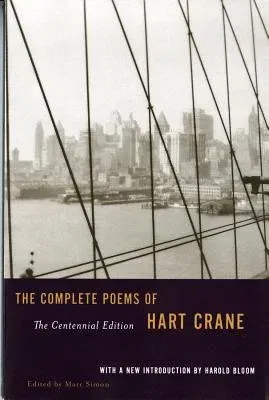Hart Crane
(Author)Complete Poems of Hart CranePaperback, 17 May 2001

Qty
1
Turbo
Ships in 2 - 3 days
Only 2 left
Free Delivery
Cash on Delivery
15 Days
Free Returns
Secure Checkout

Part of Series
Centennial Edition
Print Length
304 pages
Language
English
Publisher
Liveright Publishing Corporation
Date Published
17 May 2001
ISBN-10
0871401789
ISBN-13
9780871401786
Description
Product Details
Author:
Book Format:
Paperback
Country of Origin:
US
Date Published:
17 May 2001
Dimensions:
20.83 x
13.72 x
2.29 cm
ISBN-10:
0871401789
ISBN-13:
9780871401786
Language:
English
Pages:
304
Publisher:
Series:
Weight:
272.16 gm